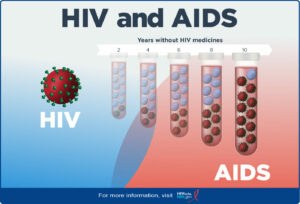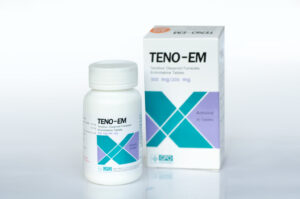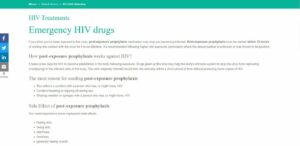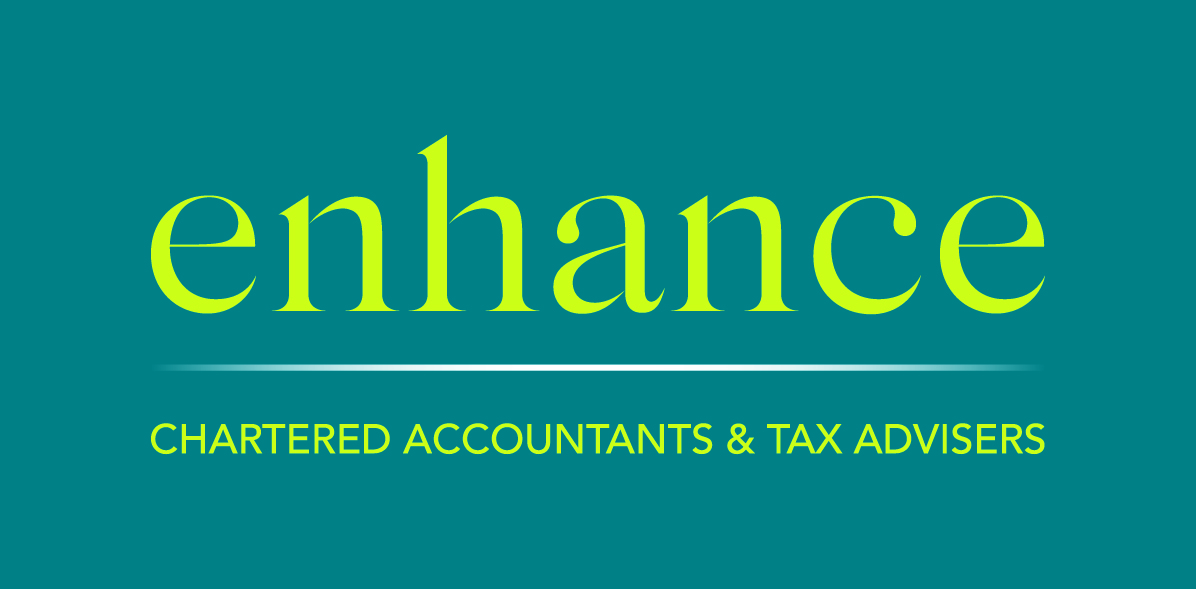HIV and HIV prevention medication
Welcome to this 3rd in a monthly series with Dr Francois Fong of Neo-Health Group in Hong Kong. This monthly VLOG deals with issues related to sexual health and we hope will contribute to public education about sexual health and help viewers, both women and men, learn about prevention and treatment for the benefit of their own health.
Today’s topic is HIV and HIV prevention medication and how it can reduce your risk of contracting HIV.
You can see the previous VLOGs as below:
https://seiml.com/venture/hpv-know-how-to-protect-yourself/
https://seiml.com/venture/nhg-vlog-dec-2021-stds-breaking-the-taboos/
Script of Interview
Interviewee Dr. Francois Fong (FF)
Position Managing Director
Company name Neo-Health Group (NHG)
Company website https://www.neohealth.com.hk/
Interviewer John D. Evans, CFA (JE)
Interview conducted on 17 February 2022
HIV: the basics
JE Well, good day to the viewers of this new episode of SEIML Ventures with Dr. Francois Fong of Neo-Health Group in Hong Kong. This is the third in our monthly series with Dr. Fong and this VLOG deals with issues related to sexual health, and we hope will contribute to public education about sexual health and help viewers, both women and men, learn about prevention and treatment for the benefit of their own health. Today’s topic is HIV and HIV prevention medication and how it can reduce your risk of contracting HIV, a very important topic. So welcome, Francois, good to have you back again,
FF Good evening, John.
JE So, let’s start off and give the viewers the basics of HIV, a general definition, a description of it, and how it can be acquired.

FF Well, I think a lot of people will still have some confusion between HIV infection versus having AIDS. HIV is a virus, so a bit like the COVID virus. It stands for human immunodeficiency virus, so affects humans, it causes the person to have an immunity deficiency, so that the person eventually may die of various infections or bacterial organisms that normally will not affect normal people. So that at the end stage of a person carrying HIV, then that’s what we call AIDS. That’s the end stage of HIV infection. So, the two do not necessarily means the same thing.
JE Okay. And how is it acquired, many ways or just sexual contact?
FF Well, in most cases, HIV is transmitted through sexual contact with bodily fluids. So, it can be blood, it can be semen, vaginal fluid, around or over 90% of infection of HIV are sexually transmitted. But other causes, including mother to child transmission in some countries, intravenous drug use or sharing needles are still common causes in different countries.
JE Okay. And I know Asia is a large, diverse region. But can you talk about the prevalence in Asia?
FF Well, in that, as you say, there’s a wide variety of prevalence. So, compared to the countries with well education and prevention programmes, like Australia or Japan, their incidence is about one in 1,000 people. However, in other countries, like in Thailand or Indonesia, the statistics are not very clear in but Thailand of statistics about one in 100. So that’s about tenfold difference in more advanced countries, and the developed countries.
JE Okay. So, let’s, let’s talk about the consequences. health consequences, other consequences of contracting HIV for men and women and maybe they’re different for the two,
FF I think we can divide this into three aspects: the biological effect, the psychological effect, and also the social impact. So physically, when a person acquires HIV infection, initially, he or she may have an acute illness, like a viral infection, fever, sometimes rash. But about half the people do not actually exhibit any symptoms. So, they don’t necessarily know they’ve got the infection. After about eight to 10 years, then the virus gradually affects their immune system. So throughout that initial infection, till about the end stage, eight to 10 years later, the person can live quite normal, although the person is still carrying the virus and potentially can infect others. Now towards the end, when the immune system becomes damaged, then the person can be infected by various fungal infection, bacterial infections that normally do not affect healthy individuals. So, then they would die of potentially infections or cancers on the skin, which usually are rare in healthy individuals. Then comes that psychological impact is shown that people with HIV often they have their self-esteem is reduced, they’re in higher risk of depression and suicide. And for myself, I had patients with HIV who actually committed suicide as well. Then the social impact. Now a lot of the patients may not necessarily tell their family. So, it becomes a disease that can be quite lonely to some because of fear to tell their partners, their family, so often they don’t get necessary support like people with other illnesses. And also, the other consequence, for example, in people who wants to travel overseas work and still in many countries in Asia, when they apply for a work visa, they may require HIV test. And for people living with HIV with a positive result, they may not be able to grant the VISAs for working. And also, there’s restrictions on life insurance and medical insurance in many countries still.
JE Okay. I’m just going to ask a follow up question about your first one, the biological consequences. Does it affect men and women equally? Or, or is one sex more at risk of HIV than the other?
FF Generally, women have a higher risk of contracting HIV in terms of sexual contact, or also gay men who are the recipient of anal sex, they also have high risk of infections.
JE Okay. Okay. So, the next topic is about how does one protect themselves? What are the different measures to try to avoid getting it, testing it, all of these aspects?
FF I think it will come to a term though, we’ll do use protections that protection equivalent to condom use something in sexual education in high school. They always been taught about how people should be using condoms. But condom can be something that’s quite unreliable, we see many cases people will know that they need to use but actually how frequently use can be different and can be quite unreliable. Particularly after they have happy hours, they are under the influence of alcohol or drugs, condom usage becoming very unreliable means of protection. Obviously, controlling the number of sex partners is important and having regular sex with protections. But nowadays, there’s also medications we can use before having sex or after sex to reduce the chance of HIV infections. So, the pre-exposure prophylaxis, or we call PrEP or ‘prep’, or the post exposure prophylaxis or we call ‘PEP’.
JE Okay, now I’m aware of those terms. Let’s get a bit more detail on both of them. And is it the same medication it’s just in one instance you’re taking it before or taking it after? Or are they different medications as well?
FF Well, to give an analogy, it’s a bit like taking the contraceptive pill and the morning after pill. So, they are of similar ingredients. And in fact, PrEP has got less components compared to PEP. So, when people have an incident and post exposure, the virus has potentially already entered into the body. So, they require stronger medicine to stop the virus multiplying in the body. So that’s for PEP, usually that involves three medications. The antiviral medications for HIV and the Pre-Exposure usually involve two medications.
JE And the dosage, the frequency, say of PrEP, is this just taken a few times before sex or is this something someone takes every day of the year? What’s the usage like?
FF There are two ways of taking PrEP. So, there’s daily use, and there’s also on-demand use. For daily use, obviously, it means to take it on a daily basis. So, it offers better protections overall and reliability is a bit stronger. So, for people taking PrEP on a daily basis, research has shown that it would reduce the HIV infection incidence by 96% per year. And for on demand use it’s only taken before an episode. So, for people who do not have such frequent sexual encounters, then on-demand used properly, which will definitely reduce the amount of drug loaded in the body. So, on demand use, people usually required to take two pills, at least two hours before having sex and then one pill at 24 hours at one at 48 hours. That means for one episode, it requires four tablets
JE Okay, okay. Now, the effectiveness, I mean 96 or 86% for such a serious virus sounds very, very good. So, I mean, should this be something everyone considers taking or are there any arguments against taking it, are there side effects or should just anyone who’s having sex just automatically take PrEP?
FF Well obviously they are antiviral prescription medications. So, they should not be taken like having candies. So, it requires medical supervision in technical in terms of their regularity and how to take them. And also monitoring is required. For example, people taking PrEP, they require a regular monitoring of their liver function and kidney function. People taking it on the long-term daily basis potentially can also affect their bone density as well. So, they need to be careful about how to use it. But just like in anything is always a risk and versus benefit. So, if the risk outweighs the benefits, then it would not be useful for a person. But if they are high risk for infections of HIV, for example, then taking PrEP would be an option, additional to using condoms. And overseas experience has shown like in cities like in San Francisco, London or Sydney after implementing PrEP programme, the HIV incidence rate or new cases rate had dropped between 40 to 60% within one or two years.
JE Really, really, that’s a lot. Now I understand you offer a specific PrEP medication called Teno EM. Tell us a little bit about that. Is that affordable for most people? Is it also available in in the Public Health Centre? What about the specific Teno EM that you offer?

FF Well, generally we offer three different types of PrEPs, the brand product called Truvada and there’s Descovy. So, they are made by Gilead an American company and they are very effective. However, in Hong Kong, the price can be very expensive, sold between 8,000 to $10,000 a month. However, Teno EM is equivalent drug or generic to Truvada and it’s made in Thailand and is at a much cheaper price compared to Truvada. So, in terms of affordability, we hope that will bring people with more opportunity to be able to use it and more affordable.
JE Is the public health system, does it make it available free to anyone, or is it only through the private health care system that you can get any type of PrEP?
FF Well, in Hong Kong, the public system does not offer PrEP as yet.
JE Okay.
FF It only offers some in small scale for research or study, recipient for free, there is a very small scale. In some jurisdictions, like in Taiwan, and in Taiwan would offer free PrEP by or through the public system.
JE Okay. But in Hong Kong, in most jurisdictions, it’s not available through the public system. So, you would have to go to a private provider, but fortunately, you have now a generic offering that is much less expensive, and therefore much more affordable for most people.
FF That’s right, it’s one/sixth of the price of the general product.
JE Okay. But people still need to have a checkup and medical monitoring on an ongoing basis before they get involved with this.
FF And to make sure they able to use it correctly.
JE Okay. Last question. Just to close off with the PEP, the post exposure. I guess you said it’s a slightly different medication. Is it also available in an affordable generic version?

FF In a way yes, there’s branded product which is 3 in 1 or 4 in 1 combinations, which we sell it for about 13,000 Hong Kong for a month supply. However, we match together with Tino EM, because that’s part of the component for PEP then the price can be reduced to about 50%. So Teno EM would offer much affordable PEP and also PrEP options,
JE Okay. But it sounds like from a protection point of view and if not your point of view, the PrEP, is the superior option to consider for anyone who thinks they may need this sort of protection.
FF Generally, yes, let’s say even for people taking on demand, they were only required four pills. However, for PEP, the post exposure they will require to take at least eight days on medication.
JE Okay. Okay, well that that concludes our talk for today. It’s brief, but it’s a very serious topic. But as you indicated with your statistics, you know, things that reduce things 95% risk to a person or reducing it in the community 40 to 60%, it seems like there’s treatments medications available, that can greatly reduce a person’s risk. And so, it’s something they really need to think about investigating if they’re at risk because this is a serious matter, HIV. So, I appreciate your comments and input there Francois.
FF Thank you, John.
JE Okay, so closing off, each month we will discuss a new topic related to sexually transmitted diseases and their treatment. And we hope that by providing this information via this VLOG from the Health Group in Hong Kong, people will become more aware of the whole area of sexually transmitted diseases and learn and educate themselves to take care of themselves much better.
FF Thank you, John.
End.








